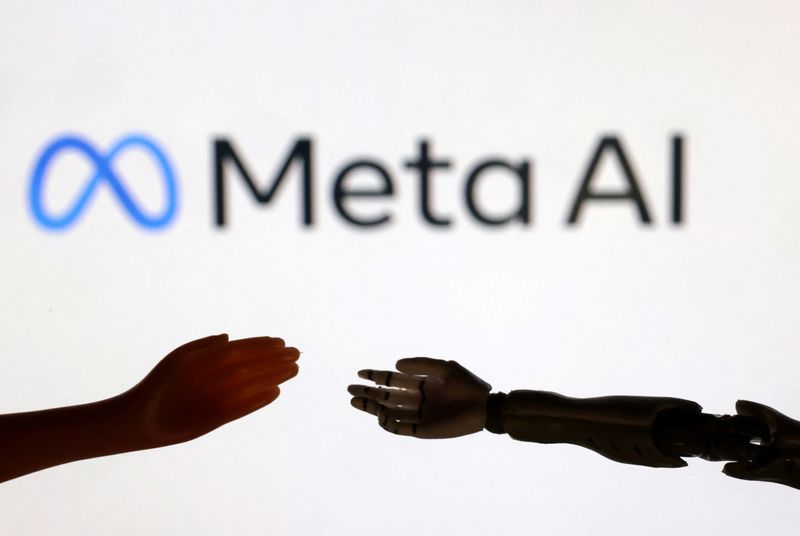By Katie Paul
NEW YORK (Reuters) - Meta Platforms (NASDAQ:META)' Oversight Board is reviewing the company's handling of two sexually explicit AI-generated images of female celebrities that circulated on its Facebook and Instagram services, the board said on Tuesday.
The board, which is funded by the social media giant but operates independently from it, will use the two examples to assess the overall effectiveness of Meta's policies and enforcement practices around pornographic fakes created using artificial intelligence, it said in a blog post.
It provided descriptions of the images in question but did not name the famous women depicted in them in order to "prevent further harm," a board spokesperson said.
Advances in AI technology have made fabricated images, audio clips and videos virtually indistinguishable from real human-created content, resulting in a spate of sexual fakes proliferating online, mostly depicting women and girls.
In an especially high-profile case earlier this year, Elon Musk-owned social media platform X briefly blocked users from searching for all images of U.S. pop star Taylor Swift after struggling to control the spread of fake explicit images of her.
Some industry executives have called for legislation to criminalize the creation of harmful "deep fakes" and require that tech companies prevent such uses of their products.
According to the Oversight Board's descriptions of its cases, one involves an AI-generated image of a nude woman resembling a public figure from India, posted by an account on Instagram that only shares AI-generated images of Indian women.
The other image, the board said, appeared in a Facebook group for sharing AI creations and featured an AI-generated depiction of a nude woman resembling "an American public figure" with a man groping her breast.

Meta removed the image depicting the American woman for violating its bullying and harassment policy, which bars "derogatory sexualized photoshops or drawings," but initially left up the one featuring the Indian woman and only reversed course after the board selected it for review.
In a separate post, Meta acknowledged the cases and pledged to implement the board's decisions.